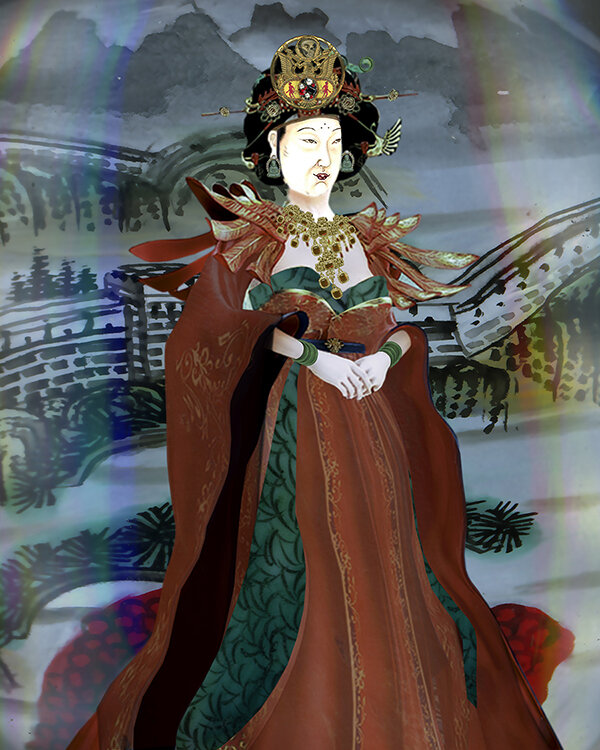SAGE EMPRESS
REFORMER | IMPERIAL SUPREME RULER
In the seventh century, Empress Wu Zetian became the first and only female sovereign ruler in more than 3,000 years of Chinese history.
In a society that demanded women remain invisible, she rose from obscurity to a position of authority. Wu bent law when possible and proclaimed herself a living deity. She has been accused of murdering her child, mother, brothers and a sister. Sifted through the lens of centuries and chauvinism, we cannot know the truth, but what we do know is impressive.
Empress Wu stabilized the Tang dynasty, now considered China’s Golden Age. Her reign was prosperous and nonviolent. Although Wu was a strong military leader, she welcomed ambassadors, avoided wars and presided over the pinnacle of the Silk Road.
During her reign, military expenses were reduced, taxes cut, retirees were given a viable pension and vast royal lands near the capital were turned over to husbandry. Wu became a patron to scholars and founded an institute to produce the Collection of Biographies of Famous Women. Buddhism became the state religion in China, even above Taoism and Confucianism. By promoting Buddhism as the favored state religion, the Empress countered strongly held Confucian beliefs against female rule. She even issued instruction for children to mourn both parents, rather than merely their fathers.
Empress Zetian’s leadership resulted in important effects regarding social class in Chinese society and she was worshiped as the Sage Mother of Mankind. Empress Wu Zetian was among one of history’s earliest feminists.


